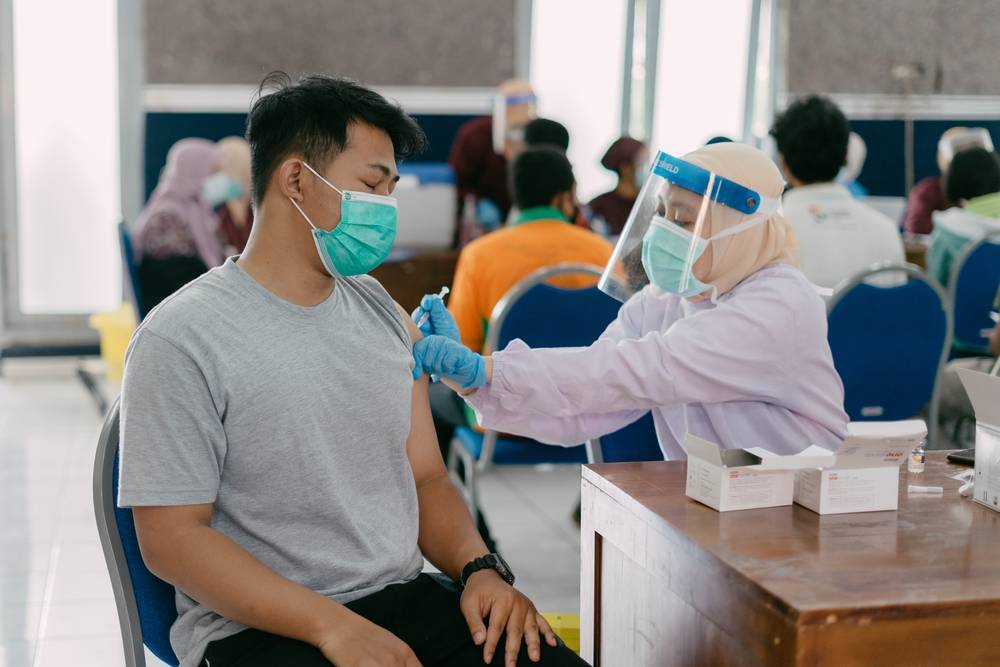The US Food and Drug Administration (FDA) has greenlit new COVID-19 boosters for both Moderna and Pfizer, marking a proactive step in the fight against rapidly spreading infections in the country.
Concurrently, Moderna and Pfizer have announced that their updated COVID-19 vaccines show a robust response against the BA.2.86 subvariant, a mutated version of the coronavirus.
Vaccination Rollout
Both individuals aged 5 and older who received a COVID-19 vaccine at least two months prior are eligible for the updated doses. Although the exact rollout date remains unspecified, the FDA is optimistic about its availability. The CDC will further discuss the distribution and potential recipients in its upcoming advisory panel meeting, signalling that the jabs could be dispatched within this week.
Promising Results
In clinical trials, Moderna’s vaccine revealed an 8.7-fold increase in neutralising antibodies against this subvariant. This is in comparison to the untreated natural antibody response. “The data should help reassure both the public and regulators,” said Jacqueline Miller, Moderna’s head of infectious diseases.
On the other hand, Pfizer, in collaboration with BioNTech, observed a strong antibody response in a preclinical study on mice.
Preparation for Future
Both Moderna and Pfizer, along with the new entrant Novavax, have developed vaccines targeting the XBB.1.5 subvariant. This variant has been predominant throughout 2023. These updated vaccines are set to be available this autumn.
Additional Information
The CDC has pointed out that the BA.2.86 might have a higher capability to infect those who had Covid-19 before or those vaccinated with earlier versions. This offshoot of the Omicron has over 35 mutations, particularly when compared to the XBB.1.5 variant. Peter Marks, director of the FDA’s Center for Biologics Evaluation and Research, emphasised the vaccines’ pivotal role in safeguarding public health. He assured the populace that the updated vaccines have surpassed the FDA’s stringent criteria concerning safety, efficacy, and quality.
CDC data reveals that over 69% of the American population has been administered at least two doses of a Covid-19 vaccine. A mere 17% have procured the revised bivalent booster shot, which received authorisation in September 2022. The FDA hinted at the potential need for yearly vaccine updates, mirroring the practice for seasonal flu shots. However, the emergence of an exceptionally virulent variant could mandate more urgent revisions.
Furthermore, in August, both vaccine producers claimed their new vaccines were effective against another subvariant named EG.5 in preliminary tests. While European regulators have endorsed Pfizer/BioNTech’s vaccine, they have yet to comment on Moderna’s updated vaccine.
Global Spread of BA.2.86
The subvariant BA.2.86 has been identified in various countries including Switzerland, South Africa, Israel, Denmark, the USA, and Britain. This was stated by a WHO official. However, many experts remain optimistic. They believe that the variant is unlikely to lead to severe disease or a significant increase in deaths. This is due to the global efforts in mass vaccination and the resultant immune defence,
The FDA asserts that these revamped vaccines will effectively counter the variants currently in circulation. This decision is timely, as the US has observed a surge in Covid-19-related hospitalisations since July. Data showcases a significant rise from the week ending on July 8 to the week concluding on August 26, where admissions soared to 17,418. Concurrently, fatalities also rose, recording 658 deaths in the week of August 26.
Takeaway
These findings accentuate the continuous efforts by vaccine manufacturers to adapt to emerging variants and ensure the safety of populations worldwide. It remains imperative for countriesto keep a close watch on these developments. This will ensure they can provide the best possible healthcare responses.

